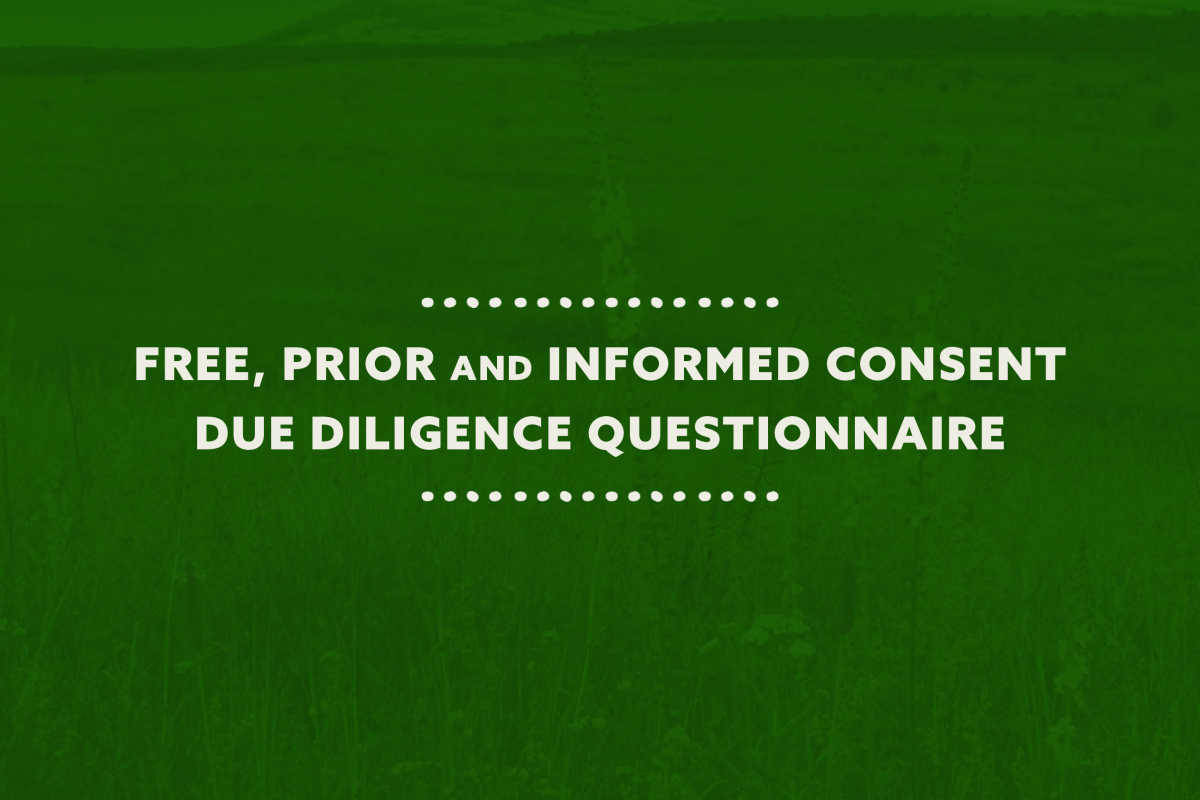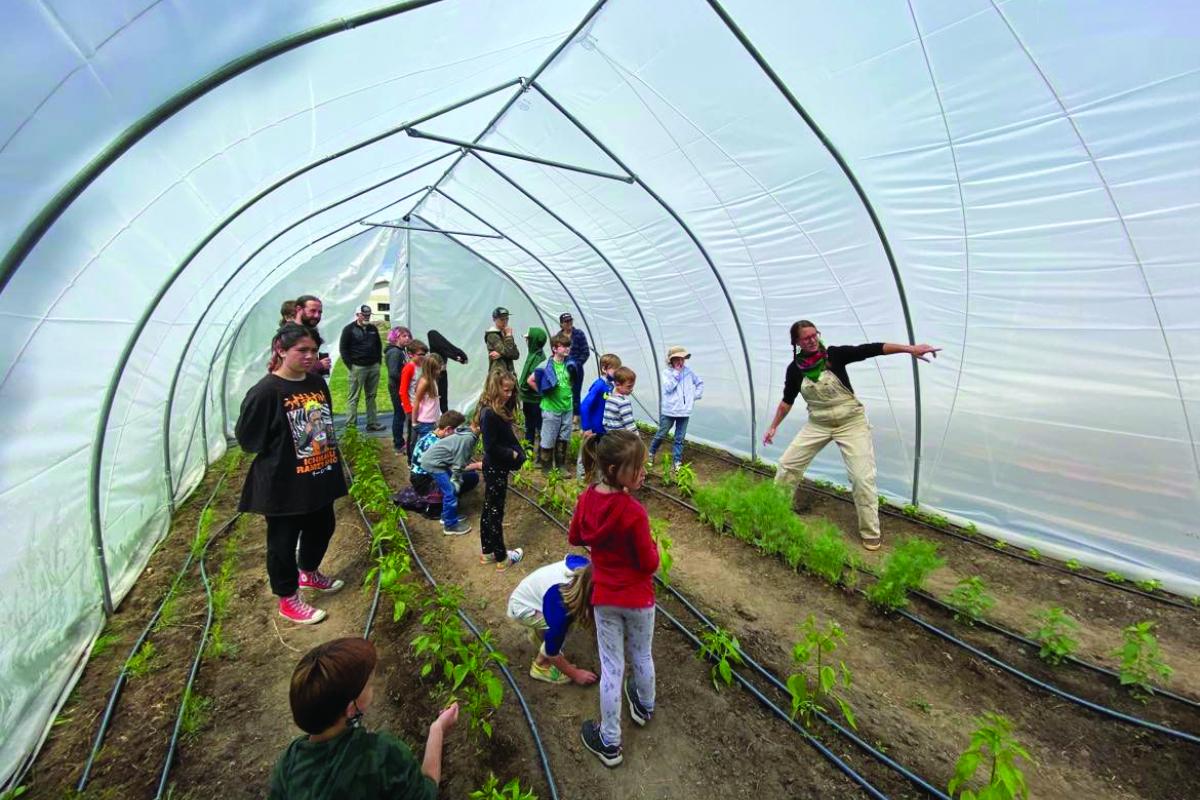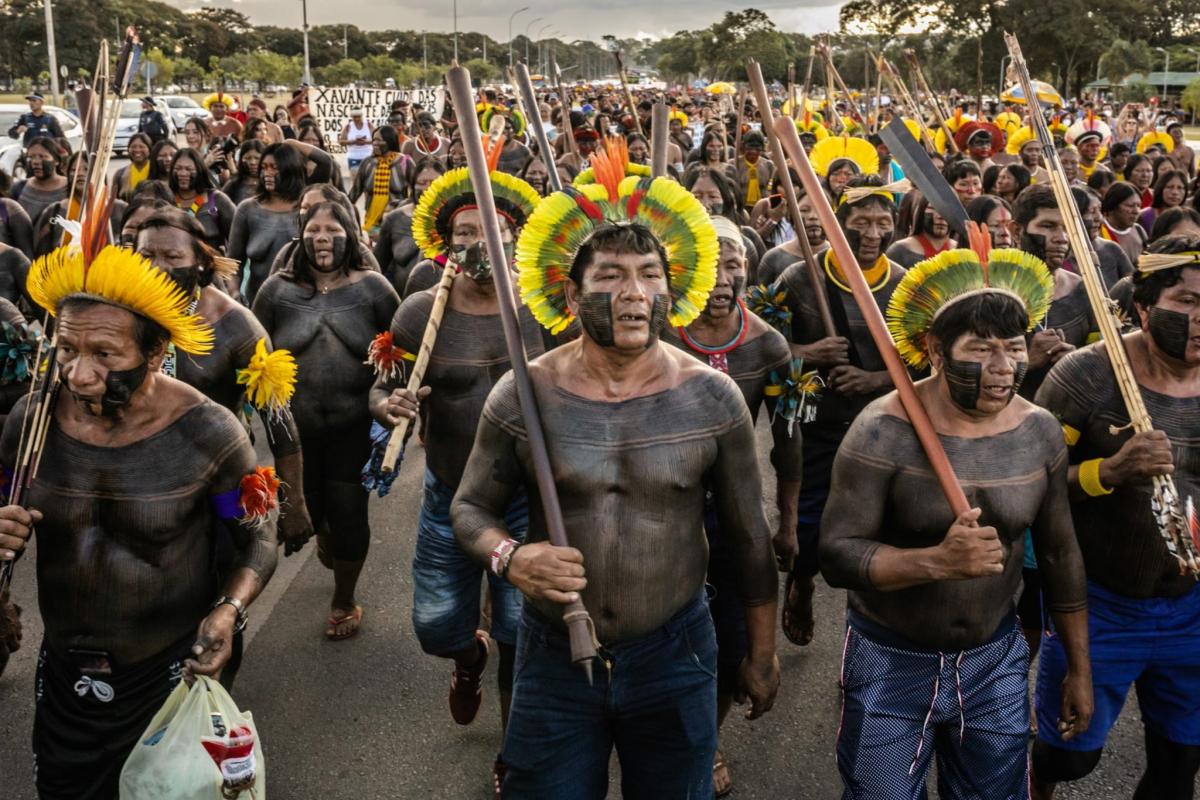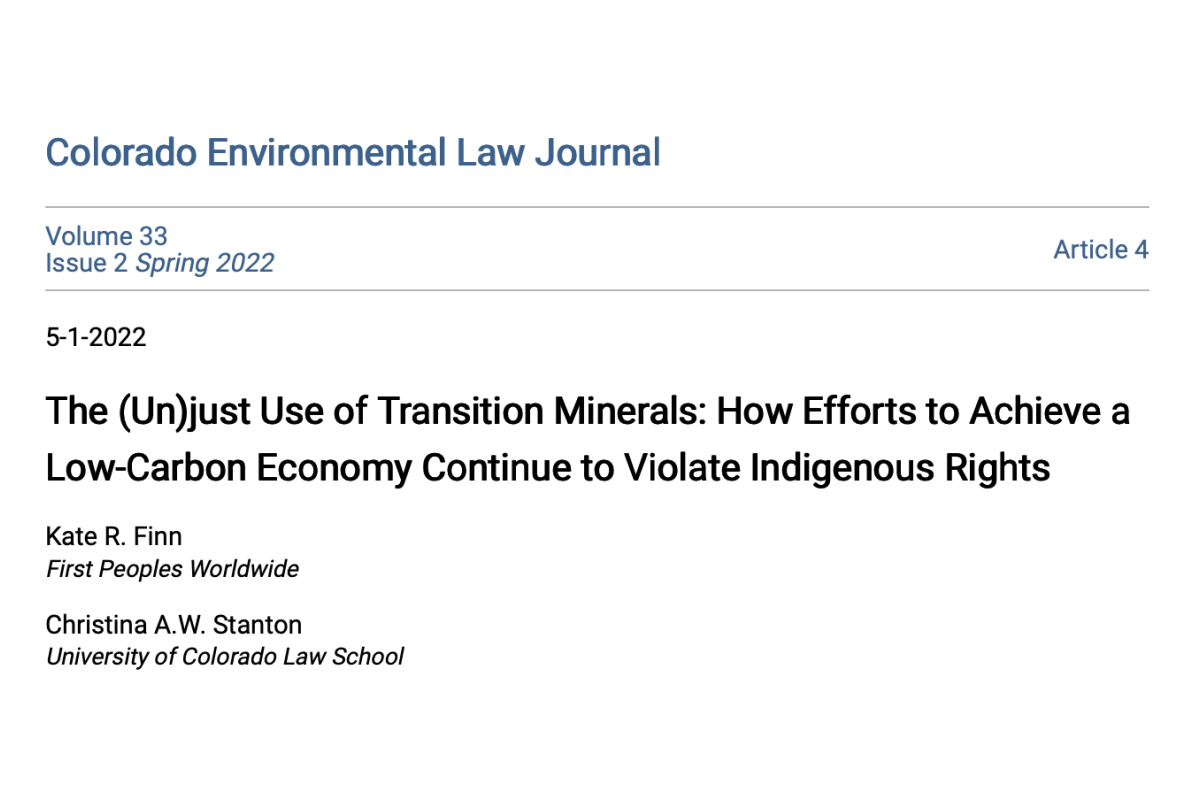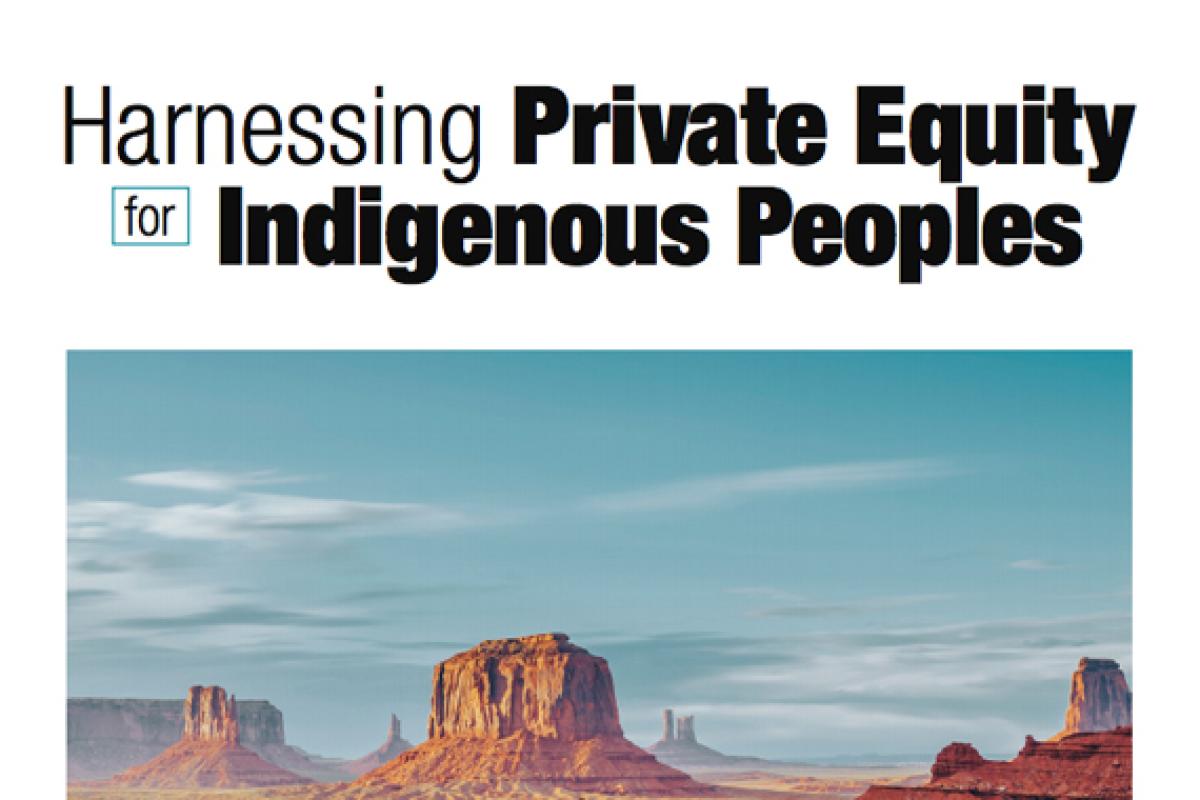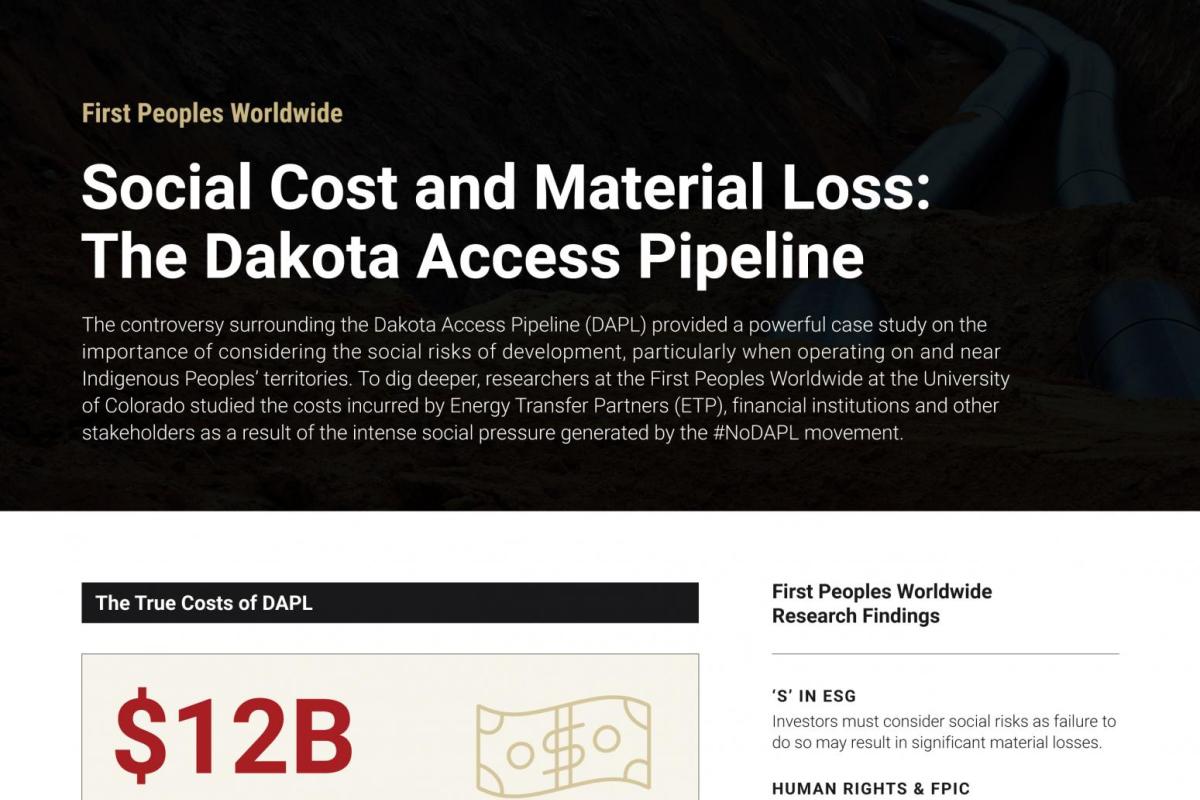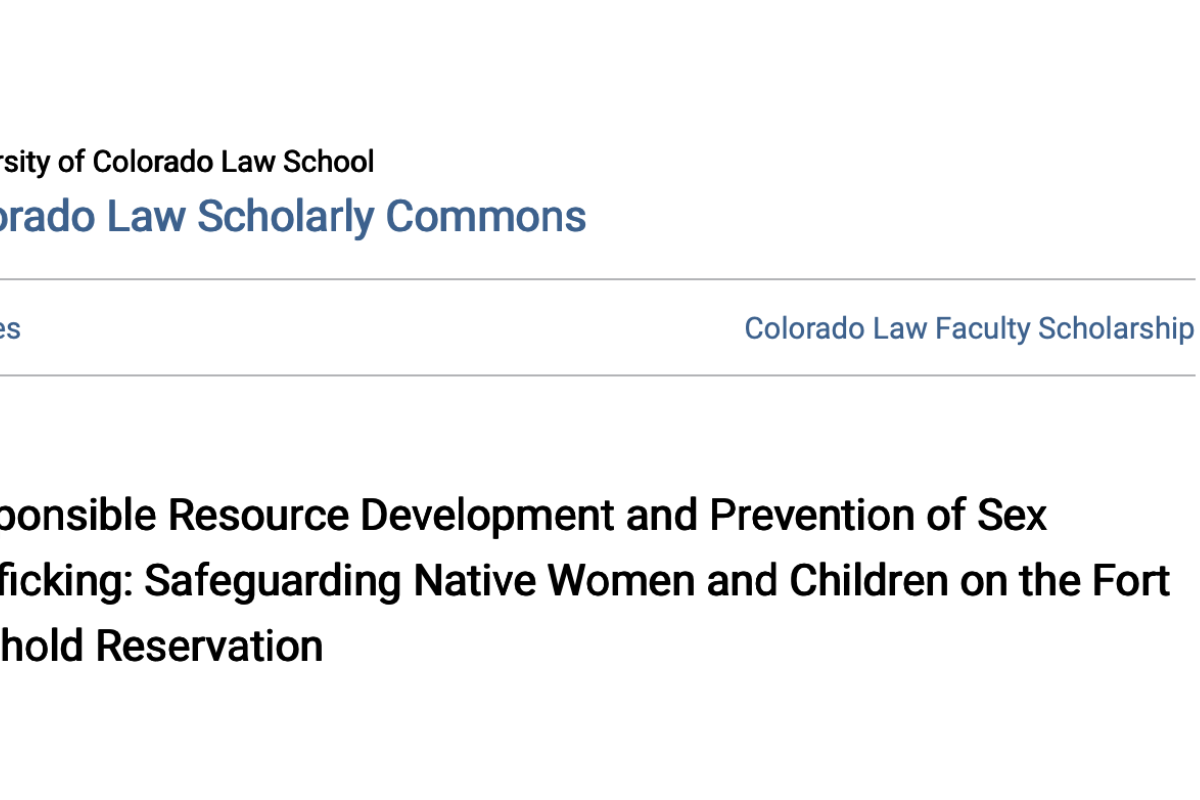Home
Drawing from interviews with 22 practitioners comprising philanthropic investors, private investors, Native intermediaries, and Native entrepreneurs, research demonstrates how catalytic capital in Indian Country enables long-term, culturally-aligned success.
Through a lens of equitable partnerships, this investor brief reviews some of the risks and opportunities in the transition to a low-carbon economy.
Though community-driven applied research, this report examines the current state of Native food supply chains and collates recommendations towards strengthening and expanding these chains from Native perspectives.
Why and how companies must account for Indigenous Peoples' land rights to understand and address business and climate risks.
Need and opportunities to prevent continued and increased Indigenous rights violations in renewable energy development. Co-authored with Amazon Watch for Stanford Social Innovation Review.
Scaling enterprise in Indian Country through private equity offers enormous opportunity as tribes seek to diversify their economic development and, given the impacts of the global pandemic, provide jobs and economic opportunities to their citizens.
This case study examines impacts attendant to the Dakota Access Pipeline project to highlight the costs that companies, financial institutions, and investors faced by failing to account for the rights of Indigenous Peoples. It asserts that social risk resulting from the absence of adequate human rights protections has material impacts.
Research examines the intersection of sex trafficking and oil and gas development on the Fort Berthold Indian Reservation in North Dakota and provdies strategies to address this complex issue.


